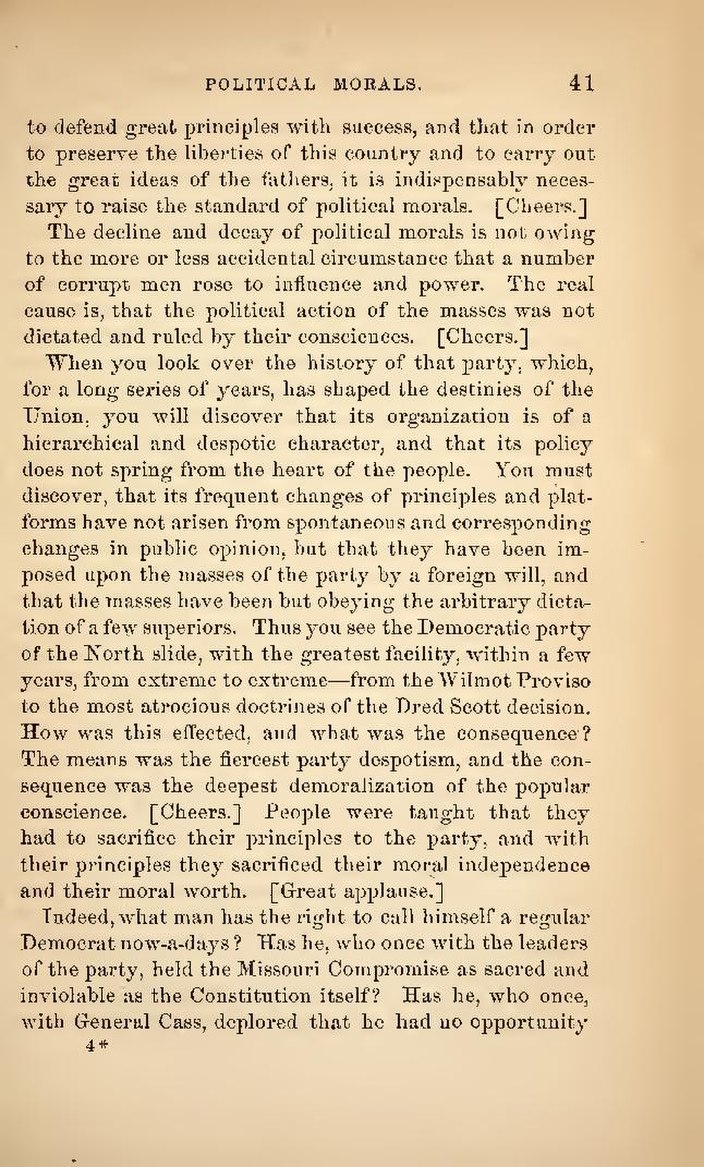to defend great principles with success, and that in order to preserve the liberties of this country and to carry out the great ideas of the fathers, it is indispensably necessary to raise the standard of political morals. [Cheers.]
The decline and decay of political morals is not owing to the more or less accidental circumstance that a number of corrupt men rose to influence and power. The real cause is, that the political action of the masses was not dictated and ruled by their consciences. [Cheers.]
When you look over the history of that party, which, for a long series of years, has shaped the destinies of the Union, you will discover that its organization is of a hierarchical and despotic character, and that its policy does not spring from the heart of the people. You must discover, that its frequent changes of principles and platforms have not arisen from spontaneous and corresponding changes in public opinion, but that they have been imposed upon the masses of the party by a foreign will, and that the masses have been but obeying the arbitrary dictation of a few superiors. Thus you see the Democratic party of the North slide, with the greatest facility, within a few years, from extreme to extreme—from the Wilmot Proviso to the most atrocious doctrines of the Dred Scott decision. How was this effected, and what was the consequence? The means was the fiercest party despotism, and the consequence was the deepest demoralization of the popular conscience. [Cheers.] People were taught that they had to sacrifice their principles to the party, and with their principles they sacrificed their moral independence and their moral worth. [Great applause.]
Indeed, what man has the right to call himself a regular Democrat now-a-days? Has he, who once with the leaders of the party, held the Missouri Compromise as sacred and inviolable as the Constitution itself? Has he, who once, with General Cass, deplored that he had no opportunity
